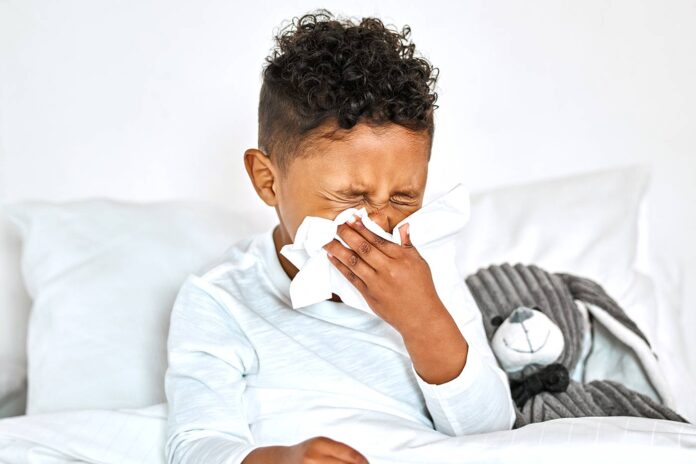It can be tricky to decide whether or not to keep your child off school, nursery or playgroup when they’re unwell.
There are government guidelines for schools and nurseries about managing specific infectious diseases at GOV.UK. These say when children should be kept off school and when they shouldn’t.
If you do keep your child at home, it’s important to call the school or nursery on the first day. Let them know that your child won’t be in and give them the reason.
If your child is well enough to go to school but has an infection that could be passed on, such as a cold sore or head lice, let their teacher know.
Other illnesses
Follow this advice for other illnesses:
Coughs and colds
It’s fine to send your child to school with a minor cough or common cold. But if they have a fever, keep them off school until the fever goes.
Encourage your child to throw away any used tissues and to wash their hands regularly.
High temperature
If your child has a high temperature, keep them out of school until it goes away.
Chickenpox
If your child has chickenpox, keep them out of school until all the spots have crusted over.
This is usually about 5 days after the spots first appeared.
Cold sores
There’s no need to keep your child off school if they have a cold sore.
Encourage them not to touch the blister or kiss anyone while they have the cold sore, or to share things like cups and towels.
Conjunctivitis
You don’t need to keep your child away from school if they have conjunctivitis.
Do get advice from your pharmacist. Encourage your child not to rub their eyes and to wash their hands regularly.
COVID-19
If your child has mild symptoms, such as a runny nose, sore throat, or slight cough, and feels well enough, they can go to school.
Your child should try to stay at home and avoid contact with other people if they have symptoms of COVID-19 and they either:
- have a high temperature
- do not feel well enough to go to school or do their normal activities
What to do if your child has tested positive
Your child is no longer required to do a COVID-19 rapid lateral flow test if they have symptoms. But if your child has tested positive for COVID-19, they should try to stay at home and avoid contact with other people for 3 days after the day they took the test.
Ear infection
If your child has an ear infection and a high temperature or severe earache, keep them off school until they’re feeling better or their high temperature goes away.
Hand, foot and mouth disease
If your child has hand, foot and mouth disease but seems well enough to go to school, there’s no need to keep them off.
Encourage your child to throw away any used tissues right away and to wash their hands regularly.
Head lice and nits
There’s no need to keep your child out of school if they have head lice.
You can treat head lice and nits without seeing a GP.
Impetigo
If your child has impetigo, they’ll need treatment from a GP, often with antibiotics.
Keep them off school until all the sores have crusted over and healed, or for 48 hours after they start antibiotic treatment.
Encourage your child to wash their hands regularly and not to share things like towels and cups with other children at school.
Ringworm
If your child has ringworm, see your pharmacist unless it’s on their scalp, in which case you should see a GP.
It’s fine for your child to go to school once they have started treatment.
Scarlet fever
If your child has scarlet fever, they’ll need treatment with antibiotics from a GP. Otherwise, they’ll be infectious for 2 to 3 weeks.
Your child can go back to school 24 hours after starting antibiotics.
Slapped cheek syndrome (fifth disease)
You don’t need to keep your child off school if they have slapped cheek syndrome because, once the rash appears, they’re no longer infectious.
But let the school or teacher know if you think your child has slapped cheek syndrome.
Sore throat
You can still send your child to school if they have a sore throat. But if they also have a high temperature, they should stay at home until it goes away.
A sore throat and a high temperature can be symptoms of tonsillitis.
Threadworms
You don’t need to keep your child out of school if they have threadworms.
Speak to your pharmacist, who can recommend a treatment.
Vomiting and diarrhoea
Children with diarrhoea or vomiting should stay away from school until they have not been sick or had diarrhoea for at least 2 days (48 hours).
If you would like your interests… published, submit via https://dorseteye.com/submit-a-report/
Join us in helping to bring reality and decency back by SUBSCRIBING to our Youtube channel: https://www.youtube.com/channel/UCQ1Ll1ylCg8U19AhNl-NoTg SUPPORTING US where you can: Award Winning Independent Citizen Media Needs Your Help. PLEASE SUPPORT US FOR JUST £2 A MONTH https://dorseteye.com/donate/







